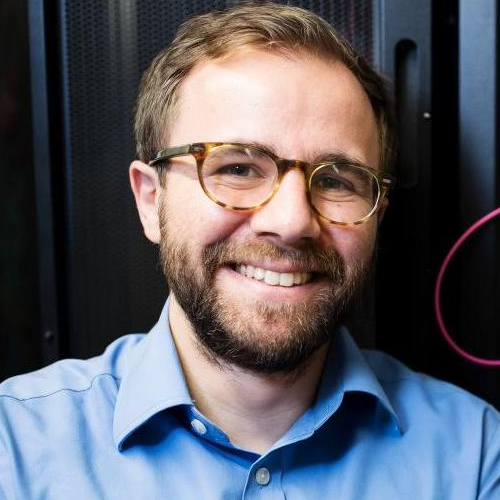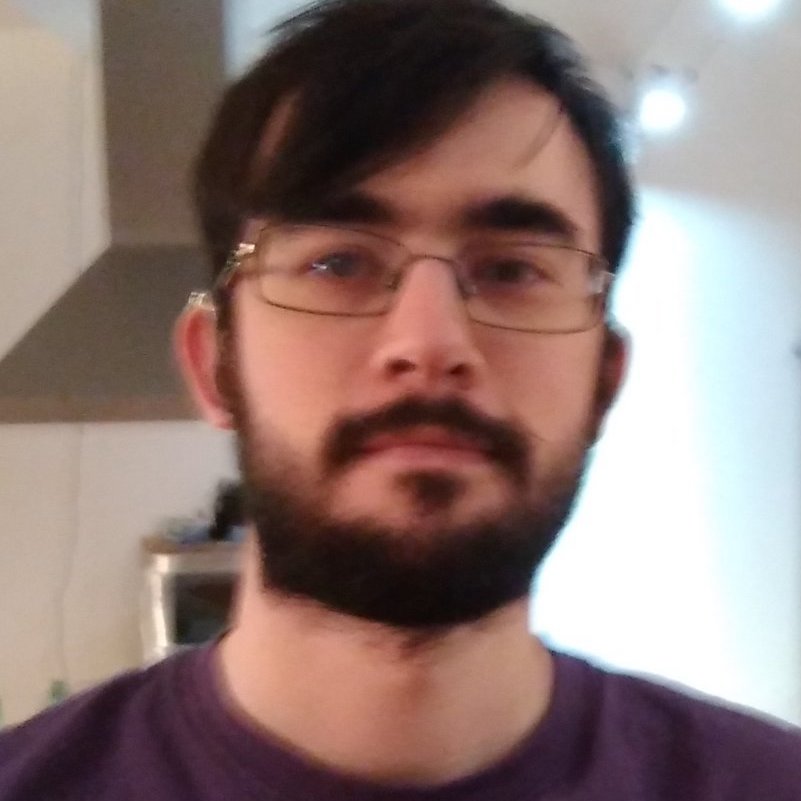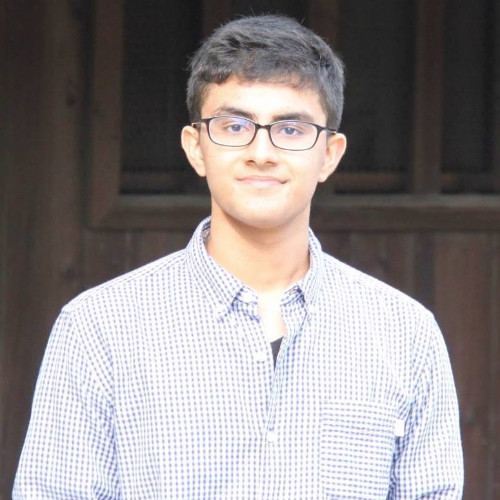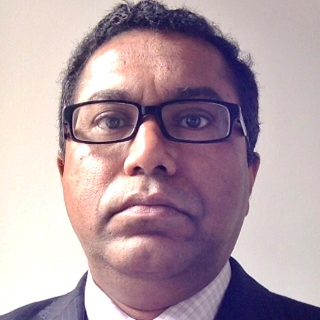Eye2Gene
A Web Tool For Genetic Prediction Of Inherited Retinal Disease Using Machine Learning
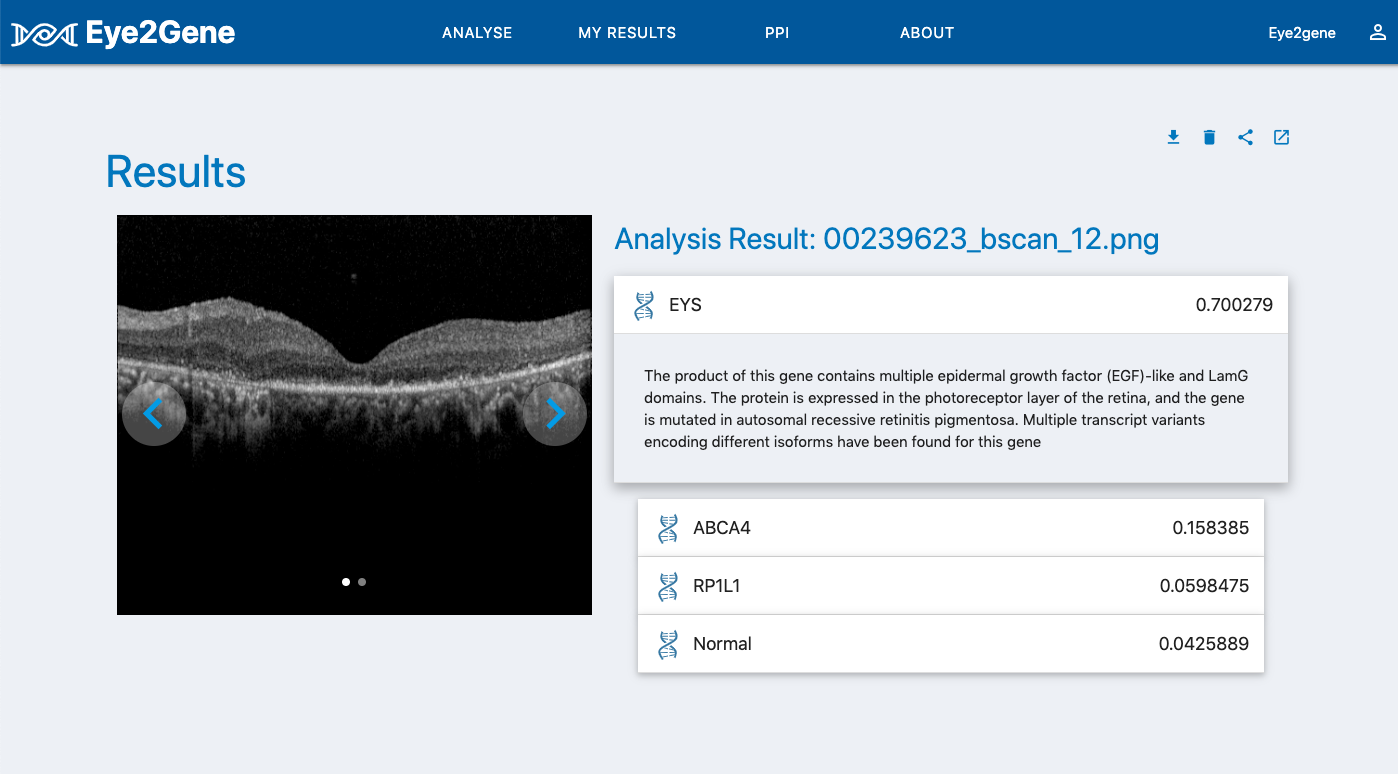
Background
Over 300 gene mutations are known to cause inherited retinal dystrophy and a genetic diagnosis is a significant step towards managing, and possibly treating, people's sight-loss. Eye2Gene makes genetic diagnosis faster and accessible to more IRD-affected families. Eye2Gene has been trained using the data of thousands of patients and has learned to distinguish between the different genetic causes using retinal images. You can try out a demo of Eye2Gene here by uploading retinal scans.Early onset inherited retinal diseases, such as Stargardt disease and retinitis pigmentosa , can lead to permanent vision loss over a period of 10 to 30 years and are cumulatively the leading cause of blindness in the working-age population in the UK. Moorfields Eye Hospital, Europe's largest eye hospital (2M patients), has the largest and best characterised, genetically and phenotypically, cohort of IRD patients in the world (>9000), which includes 800 Stargardt and 600 retinitis pigmentosa patients. Discovering the causal genetic mutations in inherited retinal diseases is a prerequisite to determining prognosis and inclusion in any gene-directed clinical trials, such as gene therapy. Inherited retinal diseases often have characteristic patterns of progression due to gene expression timing and distribution in the different types of retinal cells. Experienced clinicians learn to diagnose these, using various imaging modalities, longitudinal information on the patient's symptoms, and genetic screening. However, the process is time-consuming and expensive, as it requires access to specialist centres, expensive clinical and genetic tests, and specialist training in electrophysiology, image interpretation and bioinformatics. Moreover, the spectrum of disease-causing mutations, which may be non-coding, and the genetic heterogeneity of similar clinical phenotypes is still poorly understood. Consequently, 40% of inherited retinal disease patients do not have a diagnosis because of lack of data or insight.
References:
- Nikolas Pontikos, William Woof, Advaith Veturi et al. Eye2Gene: prediction of causal inherited retinal disease gene from multimodal imaging using deep-learning, 25 October 2022, PREPRINT (Version 1) available at Research Square https://doi.org/10.21203/rs.3.rs-2110140/v1
- Tan, Tien-En, Hwei Wuen Chan, Mandeep Singh, Tien Yin Wong, Jose S. Pulido, Michel Michaelides, Elliott H. Sohn, and Daniel Ting. "Artificial intelligence for diagnosis of inherited retinal disease: an exciting opportunity and one step forward." British journal of ophthalmology 105, no. 9 (2021): 1187-1189.
- De Fauw J, Ledsam JR, Romera-Paredes B, et al. Clinically applicable deep learning for diagnosis and referral in retinal disease. Nat Med 2018;24:1342–50. doi:10.1038/s41591-018-0107-6
- Miere, Alexandra, Thomas Le Meur, Karen Bitton, Carlotta Pallone, Oudy Semoun, Vittorio Capuano, Donato Colantuono et al. "Deep learning-based classification of inherited retinal diseases using fundus autofluorescence." Journal of Clinical Medicine 9, no. 10 (2020): 3303.
- Fujinami-Yokokawa, Yu, Hideki Ninomiya, Xiao Liu, Lizhu Yang, Nikolas Pontikos, Kazutoshi Yoshitake, Takeshi Iwata et al. "Prediction of causative genes in inherited retinal disorder from fundus photography and autofluorescence imaging using deep learning techniques." British Journal of Ophthalmology 105, no. 9 (2021): 1272-1279.
- Pontikos N, Arno G, Jurkute N, et al. Genetic Basis of Inherited Retinal Disease in a Molecularly Characterized Cohort of More Than 3000 Families from the United Kingdom. Ophthalmology Published Online First: 16 April 2020. doi:10.1016/j.ophtha.2020.04.008
- Shah M, Roomans Ledo A, Rittscher J. Automated classification of normal and Stargardt disease optical coherence tomography images using deep learning. Acta Ophthalmol 2020;98:e715–21. doi:10.1111/aos.14353

